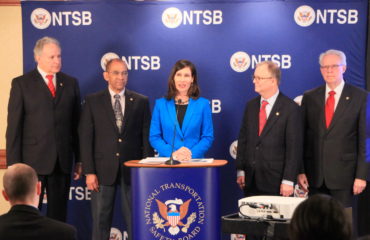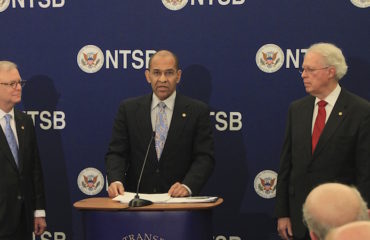Teen Drugged Driving: 3 Steps for Safer Roads
Did you know that:
- 1 in 8 weekend nighttime drivers tested positive for illicit drugs in 2007?
- 1 in 3 fatally injured drivers who were tested, tested positive for some type of illicit drug in 2010?
- In a national survey of high school seniors, 1 in 8 admitted to using marijuana and then driving in the 2 weeks prior to the survey?
The number one cause of death for teens is car crashes. In part, this is because of their inexperience in driving. When drugs are added to the mix, the risk increases dramatically. Drugged driving is a growing global problem where more people are using some type of drug, whether it is over-the-counter, prescribed, or illicit, and then trying to drive. Many drugs affect our mental and/or physical abilities, which mean our ability to drive is also impaired. In this article you will learn about the dangers, and what three steps you can take to become aware and proactive in ending this killer.
Is Drugged Driving a Problem?
There is no question that drugged driving, and teen drugged driving is a growing problem. The number and percentage of people who are driving and testing positive for drugs is increasing at a steady rate. A conservative estimate now shows that drugged driving causes 20% of the crashes in the U.S.
It is thought that part of the reason for the increasing numbers is the lack of awareness of the issue. MADD and other traffic safety organizations have done a fantastic job in stigmatizing drinking alcohol and driving, however, the message hasn’t carried over to include other drugs. There is a mistaken belief by some that using certain drugs, especially marijuana, results in safer drivers. The research proves otherwise. Any drug that impacts our mind, impacts our driving skills.
What is “Drugged Driving?”
 When many people hear the phrase “drugged driving” they automatically think of illegal drugs. However that is only a portion of the drugs causing the burgeoning drugged driving crisis. Drugged driving does occur with the use of illicit drugs, but it can also happen with the use of prescription or over-the-counter medication. Most drugs are designed to affect us, even when used as instructed, such as: reducing pain, stopping an allergic reaction or helping us to fall asleep. It is that effect that can also impair our driving abilities. Labels on medicine bottles commonly have the phrase: “Do not drive or operate heavy machinery while taking the medicine.” A car is heavy machinery. When taking any type of medicine it is important to read the labels and understand how it will affect you.
When many people hear the phrase “drugged driving” they automatically think of illegal drugs. However that is only a portion of the drugs causing the burgeoning drugged driving crisis. Drugged driving does occur with the use of illicit drugs, but it can also happen with the use of prescription or over-the-counter medication. Most drugs are designed to affect us, even when used as instructed, such as: reducing pain, stopping an allergic reaction or helping us to fall asleep. It is that effect that can also impair our driving abilities. Labels on medicine bottles commonly have the phrase: “Do not drive or operate heavy machinery while taking the medicine.” A car is heavy machinery. When taking any type of medicine it is important to read the labels and understand how it will affect you.
Drugged driving also includes the use of illicit drugs such as heroin, methamphetamine, and marijuana. The 2007 NHTSA Roadside Survey found that of the nighttime drivers tested, marijuana was the most commonly detected illicit drug followed by Cocaine and Methamphetamine.
States like Colorado and Washington now allow the use of marijuana and its impact on our highways has grown significantly. This is also true in those states that have “medical marijuana.” In a report entitled: The Legalization of Marijuana in Colorado—The Impact, the percentage of traffic fatalities where the driver tested positive for marijuana doubled from 2007 to 2012. This is in spite of a 14.8% reduction in overall traffic fatalities during the same time.
What Can You Do About Teen Drugged Driving?
First, we all need to learn more about the issue and understand that drugged driving is occurring everywhere. There is a wealth of reliable information now available about its dangers.
Second, going beyond an understanding of the issue, there has to be a self-awareness of any drug use, especially prescription and over-the-counter. Too many people do not understand the risks many drugs create; they are taking medications and then driving, putting themselves and everyone else on the road in harms way. It is important to speak with a doctor or pharmacist about a medicine’s effects prior to taking it.
Third, parental involvement is crucial in ending teen drugged driving; parents play a pivotal role in educating their teens. As a parent, you are a role model and a source of valuable information that you can share with your children. Also remember to set clear expectations on what are the expected behaviors, even after your teen goes off to college.
Finally, as a bonus tip, when discussing teen driving in the community, it is important to remember that teens must be at the table, assisting with the development of the message as well as sharing it with other teens. Peer-to-peer messaging is one of the most effective methods of sharing a message. Teens are more likely to listen to their peers than an outsider who is trying to influence them, and they can share their own thoughts in a way that is immediately grasped by other teens.
A useful tool in raising awareness is the ONDCP Teen Drugged Driving: Community Awareness Activity Toolkit. The toolkit provides community groups with the facts on the dangers of teen drugged driving, and activities to assist in its prevention.
Conclusion
In today’s world of electronic communication, it is easy to access reliable information. Parents can quickly learn about the risks of drugged driving for themselves and for their children. With that knowledge, it is time for you to share it with your family and your community. Teens can also start sharing the message with other teens and even the rest of the community. One way to share the message could be to share this post with your friends by using the share buttons below.
To end drugged driving requires action by all of us; not just parents, not just teens, not just community leaders, but everyone. Ending drugged driving requires a comprehensive approach and when we consider the number of lives that will be saved, what could be more important? The time is now, step up, speak out, and save a life.
Question: Have you dealt with this issue? What did you do? Let me know in the comment section below.
Want to hear from other experts on this topic? Check out RADD-ONDCP Teen Drugged Driving Summit.








